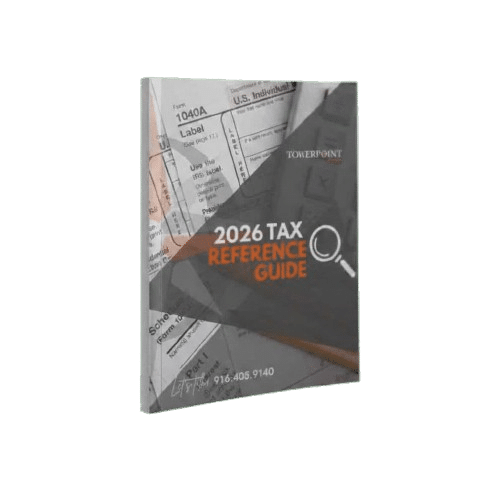Understanding what is a pension is essential for individuals navigating retirement savings, planning, and decisions about retirement income. At Towerpoint Wealth we value clarity, integrity, and a fiduciary commitment to support clients in making informed choices about their pension plan, defined benefit pension, defined contribution plans, or traditional pension plan, as well as coordinating with retirement age, pension benefit guaranty corporation, 401 k, and other employer sponsored retirement plans.
What Is a Pension, and Why It Matters
A pension refers to a structured retirement plan designed to provide retirement benefits to employees or retirees. It represents deferred compensation supported by employer pension contributions, and sometimes employee contributions, with the goal of delivering certain monthly payment income or a lump sum at normal retirement age. Understanding what is a pension includes recognizing how pensions differ in structure and risk profile, particularly between defined benefit plans and defined contribution plans, how a pension benefit guaranty corporation may protect pension benefits, and how 401 k accounts, individual retirement accounts, and other defined contribution plans relate to retirement readiness.
Defined Benefit Plans Versus Defined Contribution Plans

Defined Benefit Pension Plan Fundamentals
A defined benefit pension plan is a type of traditional pension plan in which the benefit you receive at retirement is predetermined by a formula often based on final average salary or years of service leading to a monthly benefit or lump sum amount. This structure offers a guaranteed benefit irrespective of market conditions, because both the employer and a pension employer only typically bear investment risk, and ensure sufficient pension money exists to meet obligations.
In many cases, the employer pension contributions fund the pension fund, managed by professional fiduciaries. Participants may have limited or no employee contributions, though some plans require them. The retirement fund for a defined benefit pension plan aims to ensure retirees receive a monthly income at the retirement age, often around age 65 or pension early retirement, depending on plan terms.
Defined Contribution Plans Overview
By contrast defined contribution plans, such as 401 k accounts or individual retirement accounts, do not offer predetermined pensions or certain monthly income. Instead, contributions are directed into personal retirement savings accounts by employee contributions, and often matched by employer contributions. The eventual outcome depends on investment decisions, investment growth, and the performance of chosen investments.
With this structure, the investment risk lies with the individual, and retirement benefits may vary significantly. Pension benefits are not guaranteed, and the future value of retirement savings depends on market performance. Unlike traditional pension plans, defined contribution plans offer flexibility but less security.
How Defined Benefit Plans Differ From Defined Contribution Plans At A Glance
| Feature | Defined Benefit (Traditional Pension Plan) | Defined Contribution Plans (401 k, IRA, etc.) |
|---|---|---|
| Guarantee | Guaranteed benefit based on formula | No guarantee, depends on contributions and investment growth |
| Investment Risk | Employer bears investment risk | Employee bears investment risk |
| Benefits at Retirement | Certain monthly income or lump sum | Based on account balance and market performance |
| Control | Minimal, employer-managed | High, employee-directed investment decisions |
| Portability | Often limited | Highly portable |
| Role of PBGC | Insured by Pension Benefit Guaranty Corporation | Not insured |
Role of the Pension Benefit Guaranty Corporation (PBGC)

The Pension Benefit Guaranty Corporation is a federal agency established under federal law by the Employee Retirement Income Security Act (ERISA) of 1974 to protect participants of private sector defined benefit pension plans when the employer cannot fulfill its pension obligations.
The PBGC ensures that retirees still receive their pension benefits, that is, pension payments at normal retirement age, pension early retirement, disability, or for survivors, up to legal maximums. When a plan sponsor fails, PBGC steps in. Its funding comes from insurance premiums from plan sponsors, assets of failed plans, recoveries through bankruptcies, and PBGC investment income. As of 2025, PBGC protects the retirement security of roughly 31 million Americans in private pension plans.
Legal and Coverage Limits
Not all pension benefits are fully preserved. The PBGC caps benefits, and non-lifetime enhancements or recent benefit increases may not be guaranteed. Still, the existence of PBGC offers critical protection for those relying on defined benefit plans, especially in a climate where many private employers no longer offer pensions.
How Pensions Work – Mechanics and Funding
Funding a Defined Benefit Pension Plan
A traditional pension plan relies on a pension fund that collects employer pension contributions, sometimes supplemented by employee contributions, based on actuarial assessments of future liabilities. Over time that fund must meet the payments promised at retirement age, including monthly benefit or lump sum disbursements.
Funding adequacy depends on accurate life expectancy estimates, wage growth projections, interest assumptions, and investment performance. Inadequate contributions or market downturns can lead to underfunded plans that threaten long-term sustainability.
PBGC’s Role in Single-Employer Plan Terminations
If a terminating private pension plan lacks necessary assets, the PBGC assumes trusteeship and ensures beneficiaries receive pension payments, subject to caps. Multiple regulations guide how PBGC values assets and liabilities, such as updated assumptions for single-employer plans effective mid‑2025.
Cash Balance and Hybrid Pension Plans
A growing alternative are hybrid plans like cash balance pension plans, which blend features of defined benefit pensions and 401 k–style defined contribution plans. They show a hypothetical account that grows with pay credits and interest credits but are still employer‑guaranteed and insured by the Pension Benefit Guaranty Corporation. These plans offer higher contribution limits, tax advantages, and flexibility in choosing a lump sum or annuity at retirement, making them attractive for high‑income professionals.
Tax Implications, Planning, and Retirement Strategy

Tax Treatment and Longevity Planning
Pension benefits, whether in the form of pension payment or lump sum, are generally taxed as ordinary income at both federal and applicable state levels. Some states do not tax pension income or provide tax relief, which needs to be factored into retirement planning. It is important to consult a tax professional to understand how to pay taxes on pension income.
Decisions between lump sum and annuity hinge on factors like inflation, life expectancy, legacy goals, and how pension income integrates with social security benefits, other retirement accounts, employee organization plans, and own investments.
Coordinating Pensions, 401(k), and Retirement Funds
Pension money, whether a defined benefit pension or proceeds from a hybrid or defined contribution plan, should be integrated with other retirement fund sources like 401 k, IRAs, taxable investments, and social security to create sustainable retirement income.
Advisors may provide investment advice and consider rolling a 401(k) into a pension for guaranteed income, but must weigh investment decisions, tax implications, and loss of control over investments.
Risks and Public Sector vs Private Sector Pensions

Funding Risks and Private vs Public Plans
Private pension plans are subject to ERISA and insured by PBGC, whereas federal government pensions are not insured and rely on state funding. Public sector plans may be vulnerable to funding shortfalls.
Ensuring retirement savings through employer contributions and prudent oversight is essential. Inadequate contributions or poor governance can erode pension security. Labor unions often play a role in negotiating pension benefits for workers.
Frequently Asked What Is A Pension Questions
What is a pension?
A pension is a form of retirement plan where the employer promises certain monthly income or a lump sum at retirement age, based on salary and years of service.
Is a defined benefit better than a 401 k?
They serve different purposes. A defined benefit pension offers a guaranteed benefit, with employer bearing investment risk, while a 401 k defined contribution plan gives employees control but no guarantee.
What does PBGC cover?
PBGC protects defined benefit pension plan participants in the private sector if their employer fails, providing pension payments up to legal limits.
What is a cash balance plan?
A hybrid that shows an account balance like a 401 k, but functions as a guaranteed plan insured by PBGC, combining features of both plan types.
Are pension benefits taxable?
Yes, pension benefits count as ordinary income subject to income taxes. State tax treatment varies, some states offer full exemptions.
Final Thoughts – A Pension Is Powerful, But Not Enough Alone
A defined benefit pension, supported by Pension Benefit Guaranty Corporation protection, provides a reliable foundation for retirement income. Yet, in today’s evolving landscape of 401 k dominance, defined contribution plans, and personal retirement savings, it’s essential to integrate pensions into a diversified strategy.
At Towerpoint Wealth, we treat every pension plan, whether traditional or hybrid, as part of a comprehensive retirement income and wealth management plan. We account for investment risk, tax implications, and client objectives such as legacy and stability. Let us help you understand what is a pension, assess your options, and craft a retirement strategy designed for clarity, confidence, and lasting financial peace.







